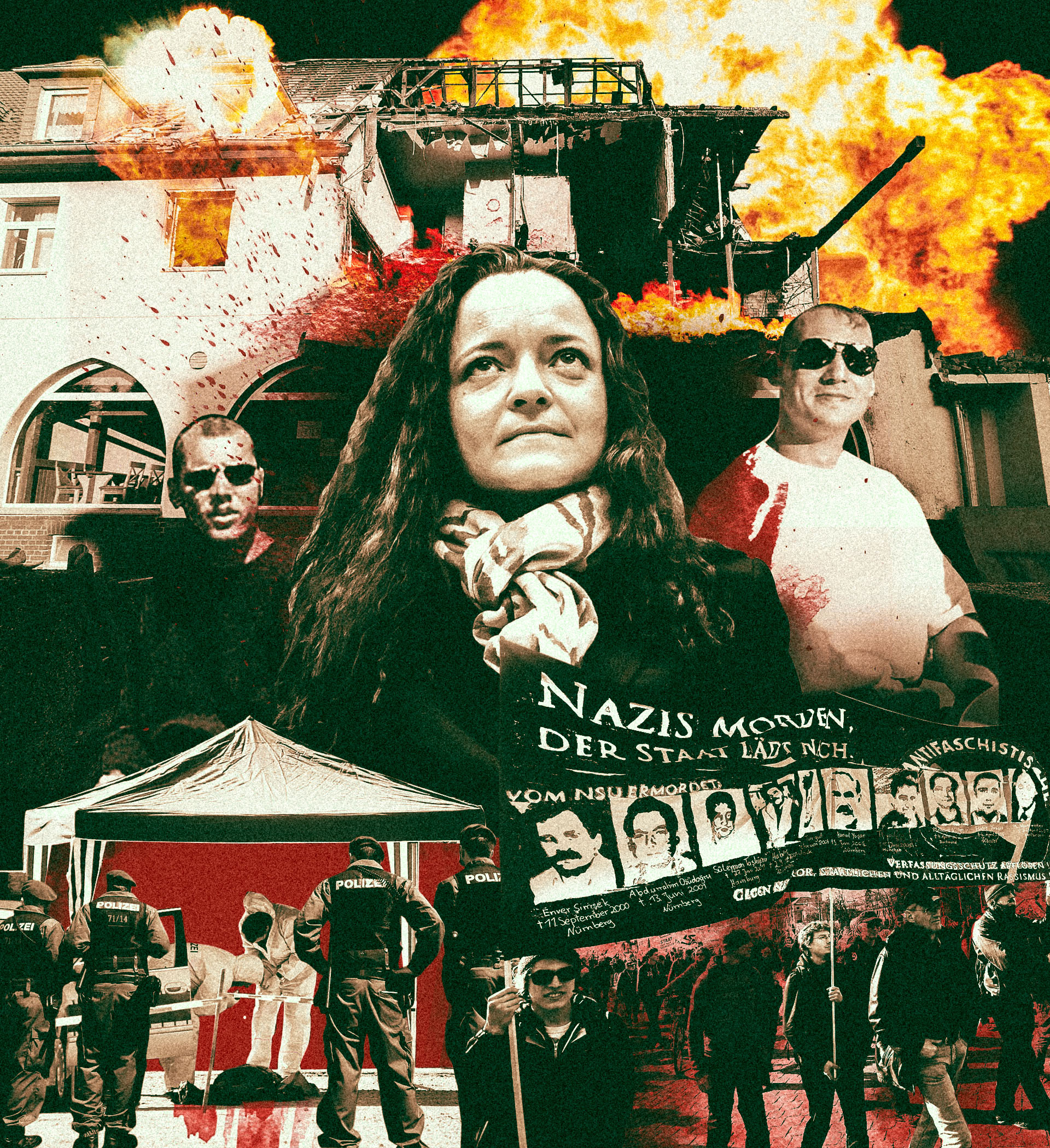
Introduction
As we have explained in detail in our analysis of last year, the Nationalist Socialist Underground (NSU) far-right terror group, between 2000 and 2007, murdered ten people in Germany[1]. Eight of the victims belonged to Germany’s more than three million Turkish community. The last victim was a German policewoman who was gunned down in 2007. This terror cell carried out also several robberies and bombings during this period. Between 1998 and 2011, they robbed 11 banks in Saxony towns of Chemnitz, Zwickau, one bank in Stralsund, Mecklenburg-West Pomerania, and two banks in Arnstadt and Eisenach in Thuringia[2]. The NSU collected 212,000 DM (1998-2001) and 486,000 Euros (2001-2011) of cash money from these robberies. The list of the NSU murders and explosive attacks are given in the below tables:
List of the NSU’s murders
|
DATE |
LOCATION |
VICTIM |
|
9 September 2000 |
Nuremberg, Bavaria |
Enver Şimşek |
|
13 June 2001 |
Nuremberg, Bavaria |
Abdurrahim Özüdoğru |
|
27 June 2001 |
Hamburg |
Süleyman Taşköprü |
|
29 August 2001 |
Munich, Bavaria |
Habib Kılıç |
|
25 February 2004 |
Rostock, Mecklenburg West-Pomerania |
Mehmet Turgut |
|
9 June 2005 |
Nuremberg, Bavaria |
İsmail Yaşar |
|
15 June 2005 |
Munich, Bavaria |
Theodoros Boulgarides |
|
4 April 2006 |
Dortmund, North Rhine-Westphalia |
Mehmet Kubaşık |
|
6 April 2006 |
Kassel, Hesse |
Halit Yozgat |
|
25 April 2007 |
Munich, Bavaria |
Michéle Kiesewetter |
|
Source: Daniel Koehler, Right-Wing Terrorism in the 21st Century: The ‘National Socialist Underground’ and the history of terror from the Far-Right in Germany. (New York: Routledge, 2017) |
||
List of the NSU’s explosive attacks
|
DATE |
LOCATION |
TYPE |
|
23 June 1999 |
Nuremberg, Bavaria |
Pipe bomb |
|
19 January 2001 |
Cologne, North Rhine-Westphalia |
Mail bomb |
|
9 June 2004 |
Cologne, North Rhine-Westphalia |
Nail bomb |
|
Source: Daniel Koehler, Right-Wing Terrorism in the 21st Century: The ‘National Socialist Underground’ and the history of terror from the Far-Right in Germany. (New York: Routledge, 2017) |
||
“NSU is also said to be responsible for the nail bomb attack that left 22 people injured in a Turkish neighborhood in Cologne in June 2004. Investigators initially attributed the murder attempt to the local Turkish gambling mafia. Years passed before authorities shifted their suspicion to the right-wing terrorists. In the early years of the investigation, family members of the victims faced allegations that their husbands, sons and brothers had been involved in criminal activities, thus making them targets for criminal groups”[3].
As stated in our mentioned last year’s analysis; Beate Zschäpe, Uwe Mundlos, and Uwe Böhnhardt were the nucleus of the National Socialist Underground. According to information contained in the study of an expert source, they met during the early 1990s in the East German town Jena and lived together for more than 13 years as a small cell. It is asserted that this group was “never was entirely clandestine and isolated, but rather integrated into a very complex network of other different-sized groups and structures”[4] The terrorist acts of the NSU were fully exposed during the pursuit and investigation into the bank robbery it carried out in Eisenach-Thuringia on 4 November 2011. As per the accounts narrated by the expert source, the NSU duo of Mundlos and Böhnhardt rented a caravan for bank robbery in Eisenach and used bicycles to leave the crime scene. They waited in a strategically parked caravan until the police searches were cancelled. However, by coincidence, bystanders had observed Mundlos and Böhnhardt arriving at the caravan and storing the bikes. An alarmed police patrol nearby informed their dispatch via radio communication that they were about to investigate the caravan. However, after several shots were fired, the caravan was set on fire from the inside before another two shots were heard by the officers. Mundlos and Böhnhardt had killed themselves after setting fire to the vehicle, which contained an extensive storage of weapons (among them, the police weapons of the killing in 2007) and ammunition. Only a couple of hours later, the third member of the group, Beate Zschäpe, set fire to the group’s flat in Zwickau, left the scene, and mailed about twelve prepared envelopes containing copies of DVDs claiming responsibility for their acts to newspapers, mosques, parties and one right-wing extremist mail order company, and stayed hidden for several days before turning herself in to the police accompanied by her lawyer. Searching the debris of the flat, investigators found more weapons, among others, the pistol of the first nine murders, and a laptop containing copies of the video claiming responsibility. As a result, the last surviving member of the NSU Beate Zschäpe was charged with co-founding a terrorist organization and the complicity in ten murders, two bombings and fourteen bank robberies[5].
Five-year long NSU trial and court verdict
The NSU trial began on 6 May 2013 in the 6th Criminal Division of Munich's Higher Regional Court and Beate Zschäpe, together with the four suspected accomplices deemed to be in the "close periphery" of the NSU trio, including Ralf Wohlleben and André Eminger, were tried.[6] Zschäpe was accused of 10 murders, arson, forming a terrorist organization and membership in a terrorist organization. Ralf Wohlleben, a former official of the far-right German National Democratic Party (NPD), was detained on 29 November 2011 and charged with supporting a terrorist organization and complicity in six murders. André Eminger is considered by the experts on the NSU as a member of the NSU’s close periphery. He is an owner of a marketing and media company and helped the NSU to create the technically sophisticated video claiming responsibility and sarcastically mocking the attacks. It is asserted that he is the member of Skinhead group Brigade Ost (Brigade East) and was arrested on November 24, 2011. The Federal Prosecutor General charged him with assisting in one bombing in Cologne, for robbery and for the support of a terrorist organization[7].
After nearly a five-year trial, the Munich Higher Regional Court issued the verdict on 11 June 2018. Beate Zschäpe was found guilty of being complicit in 10 murders, 43 attempted murders, 2 severe bombing attacks and 15 bank and other robberies, and sentenced to life in prison[8]. Ralf Wohlleben was sentenced to 10 years for aiding and abetting murder. Carsten Schultze, a juvenile at the time, was found guilty of handing the pistol and silencer to the NSU and was sentenced to three years. Holger Gerlach received three years sentence for giving his birth certificate and other ID to NSU member Uwe Mundlos. Last but not least, André Eminger was given only two years and six months for helping a terrorist group and was released, having already served his prison time during the trial[9]. According to the Deutsche Welle report, during the announcement of the court verdict, the interior of the courtroom was jam-packed as some people queued to enter the room the night before and many neo-Nazis entered the courtroom and cheered loudly when Andre Eminger was released. Meanwhile, many held a minute of silence for NSU's victims before the verdict was read out[10].
Criticisms leveled against the court verdict in the German public opinion
The verdict of the Munich Court has been widely criticized, especially for the light sentences given to the already very limited number of accomplices of these serious crimes. According to the report of the Guardian newspaper, Dirk Laabs, co-author of a book on NSU[11] described the sentences of the Zschäpe conspirators as “gentle decision", and said that if the same people were accused of providing weapons and logistics for terrorist activities of "Islamic cells", they would have been thoroughly investigated[12]. Relatives, friends, and supporters of NSU victims also asserted that the five-year trial involving more than 600 witnesses did not provide any information on the extent to which the Federal Constitutional Protection Agency (BfV) was aware of these murders. As per these critics, for years, the police had also denied any racist incentives for the murders on the basis of false assumption that victims were involved in a gang war between the country's German-Turkish populations. It is also stressed in this context that it was learned during the trial that information on neo-Nazi groups had repeatedly been conveyed to the intelligence units by paid informants. Additionally, during the April 2006 murder of 21-year-old Halit Yozgat, a Hessen-based intelligence agent was even present at the cafe where the murder was committed but ignored the incident. During the trial, an employee of the BfV headquarters admitted that he destroyed the files of seven informants just days after the NSU cell appeared in 2011.
In this vein, especially the mild judgment for André Eminger triggered widespread criticism. It is asserted in this regard that together with his wife, Eminger was the closest confidante of the three main NSU perpetrators for 13 years. He had the words “Die Jew Die” tattooed on his stomach and admitted to his neo-Nazi views during the trial. The NSU members were able to live underground for over a decade due to his help. Instead of a 12-year prison sentence for his role in assisting attempted murder, as the prosecutor had requested, Eminger was sentenced to only a two-and-a-half years in prison for supporting a terrorist organization and he was released to the applauses and cheers of his neo-Nazi supporters[13].
The Munich court, almost two years after its verdict, published the reasoning of its judgement on 21 April 2020. It is asserted that if the court had published its reasoned judgement two days later, it would have been necessary to repeat the entire trial due to the expiration of the applicable legal deadline. It is also claimed that after the publication of the reasoned judgement, now, it is possible for the public prosecutor’s office and defense attorneys to appeal against the judgment for retrial.
According to the report of Deutsche Welle, the lawyer of one of the plaintiffs whose father was killed by the NSU suggests that the main purpose of the case was not to solely convict the only surviving core member of the NSU. The court, more importantly, should have shed light on the details of the NSU's crimes. In particular, the lawyer says that court should have investigated the failings of Germany's domestic intelligence agency (the Verfassungsschutz). However, the lawyer suggests, the verdict points to an isolated and radicalized cell, rather than to structural problems enabling their crimes. The victims' relatives and their lawyers do not dispute the guilty verdict against Zschäpe, but they severely criticize the indifferent language of the written reasoning. They draw attention to the point that several of the victims' relatives testified in the trial, but not a word from their testimonies was included in the 3,025 pages of the judgement[14].
In Lieu of Conclusion
As will be remembered, Germany was shocked last year with the murder of the Kassel city government president Walter Lübcke on 2 June 2019 by a neo-Nazi extremist who had once tried to plant a pipe bomb at a hostel for asylum-seekers and had beaten a migrant in prison[15]. On 19 February 2020 ten people were killed and five others wounded in a terrorist attack by a far-right extremist in Hannau near Frankfurt[16]. It should also be remembered in this regard that on 9 October 2019, a massacre of the Jewish congregation in the city of Halle was narrowly avoided when the attacker failed to pry open the local synagogue’s doors. He nevertheless killed two innocent victims. The person who perpetrated the attack, according to authorities, is said to have been motivated by anti-Semitism and xenophobia[17].
According to the report presented to the public in July 2020 by Interior Minister Horst Seehofer and the head of BfV Thomas Haldenwang, right-wing extremism in Germany sharply increased. Per the report, the BfV identified 32,080 right-wing extremists in Germany in 2019, up from 24,100 the year before. The BfV classified 13,000 of these cases as being prepared to use violence, 300 more than in 2018. The report underlines the increase in racism, right-wing extremism, anti-Semitism in Germany, and considers these areas as the biggest threat to security in Germany. The report suggests that racism and anti-Semitism emerge to a considerable degree out of right-wing extremism[18].
There is no doubt that the German government and a large segments of the German society are seriously fighting against terrorist acts that have started to emerge in parallel with the rise of the far-right. At this point, it is necessary to add the serious rise in Islamophobia to the list of threats to security in Germany mentioned by the German authorities. In this context, it is also possible to characterize Islamophobia as anti-Muslim racism. It is also a fact that combination of racism and xenophobia brings to the fore the concept of “xeno-racism” and this new terminology encompasses anti-Muslim racism. It should be noted in this conjunction that while using all-encompassing terminologies like racism, some special forms of discrimination, such as anti-Muslim racism, should not be ignored. A video titled “Anti-Muslim racism on the rise in Germany” prepared and broadcasted by Deutche Welle on 17 September 2020 is a useful start in studying this issue. The link for the video is given in the footnotes below[19].
In the light of the foregoing, as a concluding remark, the following question comes to mind: Did the timid verdict of the Munich Court on the NSU case play a role in the recent increase of number of right-wing extremists and rise in far-right terrorist acts in Germany? Investigating an answer to this question through an academic research can contribute to elucidating the reasons for the recent rise of the far right in Germany.
On the other hand, recent revelations of the confirmed infiltration of right-wing extremists into the German police force, military structure, and intelligence units is a most worrisome development that necessitates an even more scrutinizing follow up to this article.
*Photo: ForeignPolicy.com
[1] Teoman Ertuğrul Tulun, “Far-Right Violence And Terrorism Rises In Germany: National Socialist Underground (Nsu) Terrorist Group And The Murders Of Eight Turkish-German Citizens,” Center For Eurasian Studies (AVİM) 2019, no. 20 (August 26, 2020), https://avim.org.tr/en/Analiz/FAR-RIGHT-VIOLENCE-AND-TERRORISM-RISES-IN-GERMANY-NATIONAL-SOCIALIST-UNDERGROUND-NSU-TERRORIST-GROUP-AND-THE-MURDERS-OF-EIGHT-TURKISH-GERMAN-CITIZENS-1.
[2] Daniel Koehler, Right-Wing Terrorism in the 21st Century: The ‘National Socialist Underground’ and the History of Terror from the Far-Right in Germany (New York: Routledge, 2018), 131.
[3] Marc Saha, “NSU: What You Need to Know about Germany’s Neo-Nazi Terror Group,” Deutsche Welle, August 5, 2020, sec. Germany, https://www.dw.com/en/nsu-germany/a-39777036.
[4] Daniel Koehler, “The German ‘National Socialist Underground (NSU)’ and Anglo-American Networks. The Internationalisation of Far-Right Terror,” in The Post-War Anglo-American Far Right: A Special Relationship of Hate, ed. Jackson P. and Shekhovtsov A. (London: Palgrave Pivot, 2014), 124.
[5] Koehler, Right-Wing Terrorism in the 21st Century: The ‘National Socialist Underground’ and the History of Terror from the Far-Right in Germany, 135–36.
[6] “Close periphery” terminology is used by Daniel Koehler. Koehler, 135.
[7] Koehler, 139.
[8] “NSU Trial Verdict Announced: After 438 Trial Days, a Verdict in the NSU Case Has Been Delivered.,” Rosa Luxemburg Stiftung, July 11, 2018, sec. Neonazism - NSU-Komplex, https://www.rosalux.de/en/news/id/39094/nsu-trial-verdict-announced/.
[9] “Beate Zschäpe given Life in German Neo-Nazi Murder Trial,” BBC News, July 11, 2018, https://www.bbc.com/news/world-europe-44764827.
[10] Ben Knight, “Neo-Nazi NSU Member Beate Zschäpe Found Guilty of Murder, Sentenced to Life in Prison,” Deutche Welle, July 11, 2018, sec. Germany, https://www.dw.com/en/neo-nazi-nsu-member-beate-zsch%C3%A4pe-found-guilty-of-murder-sentenced-to-life-in-prison/a-44626859.
[11] Stefan Aust and Dirk Laabs, Heimatschutz: Der Staat und die Mordserie des NSU (München: Pantheon Verlag, 2014).
[12] Philip Oltermann, “German Neo-Nazi Beate Zschäpe Sentenced to Life for NSU Murders,” The Guardian, July 11, 2018, sec. Germany, https://www.theguardian.com/world/2018/jul/11/german-neo-nazi-beate-zschape-gets-life-for-nsu-murders.
[13] Dietmar Gaisenkersting, “Verdict Published in NSU Trial: German Court Protects Neo-Nazi André Eminger,” Web Portal, World Socialist Website, May 11, 2020, https://www.wsws.org/en/articles/2020/05/11/nsut-m11.html.
[14] Marcel Fürstenau, “Germany: NSU murder verdict facing challenges from all sides,” Deutsche Welle, May 15, 2020, sec. Germany, https://www.dw.com/en/germany-nsu-murder-verdict-facing-challenges-from-all-sides/a-53453001.
[15] Matthias Bartsch et al., “Father, Neighbor, Killer: Germany’s Chilling New Far-Right Terror,” Spiegel International, June 27, 2019, https://www.spiegel.de/international/germany/father-neighbor-killer-germany-s-new-far-right-terror-a-1273689.html#.
[16] Frank Gardner, “Germany Shooting: ‘Far-Right Extremist’ Carried out Shisha Bars Attacks,” BBC News, February 20, 2020, sec. Europe, https://www.bbc.com/news/world-europe-51567971.
[17] Jenny Hill, “Halle Shooting: Trial Begins for Germany Synagogue Attack Suspect,” BBC News, July 21, 2020, sec. Europe, https://www.bbc.com/news/world-europe-53471496.
[18] “Number of Right-Wing Extremists in Germany on Rise, Security Report Suggests,” Deutsche Welle, July 9, 2020, sec. News, https://www.dw.com/en/germany-right-wing-extremists/a-54105110.
[19] Loveday Wright, Anti-Muslim Racism on the Rise in Germany, H. 264 (Germany: Deutsche Welle, 2020), https://www.dw.com/en/anti-muslim-racism-on-the-rise-in-germany/av-54969833.
© 2009-2025 Center for Eurasian Studies (AVİM) All Rights Reserved
No comments yet.
-
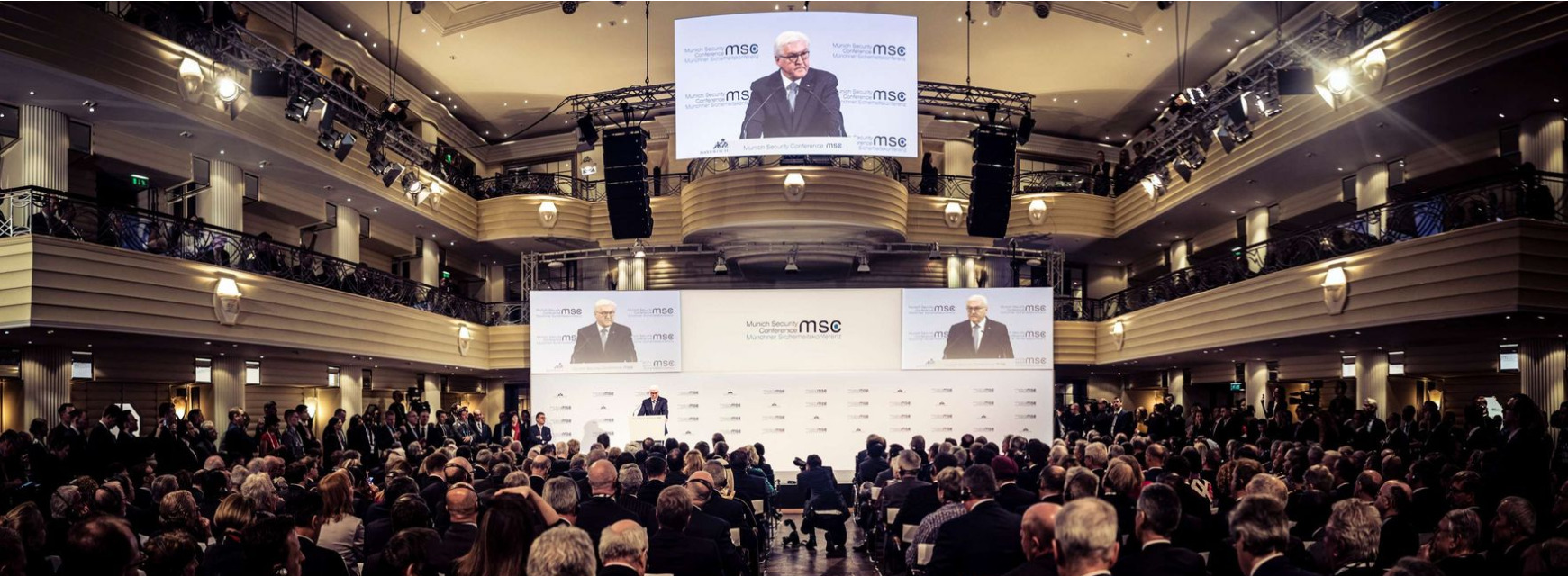 MUNICH SECURITY CONFERENCE 2020 REVEALS THE NECESSITY OF "CONSTRUCTIVE EURASIANISM"
MUNICH SECURITY CONFERENCE 2020 REVEALS THE NECESSITY OF "CONSTRUCTIVE EURASIANISM"
Teoman Ertuğrul TULUN 21.02.2020 -
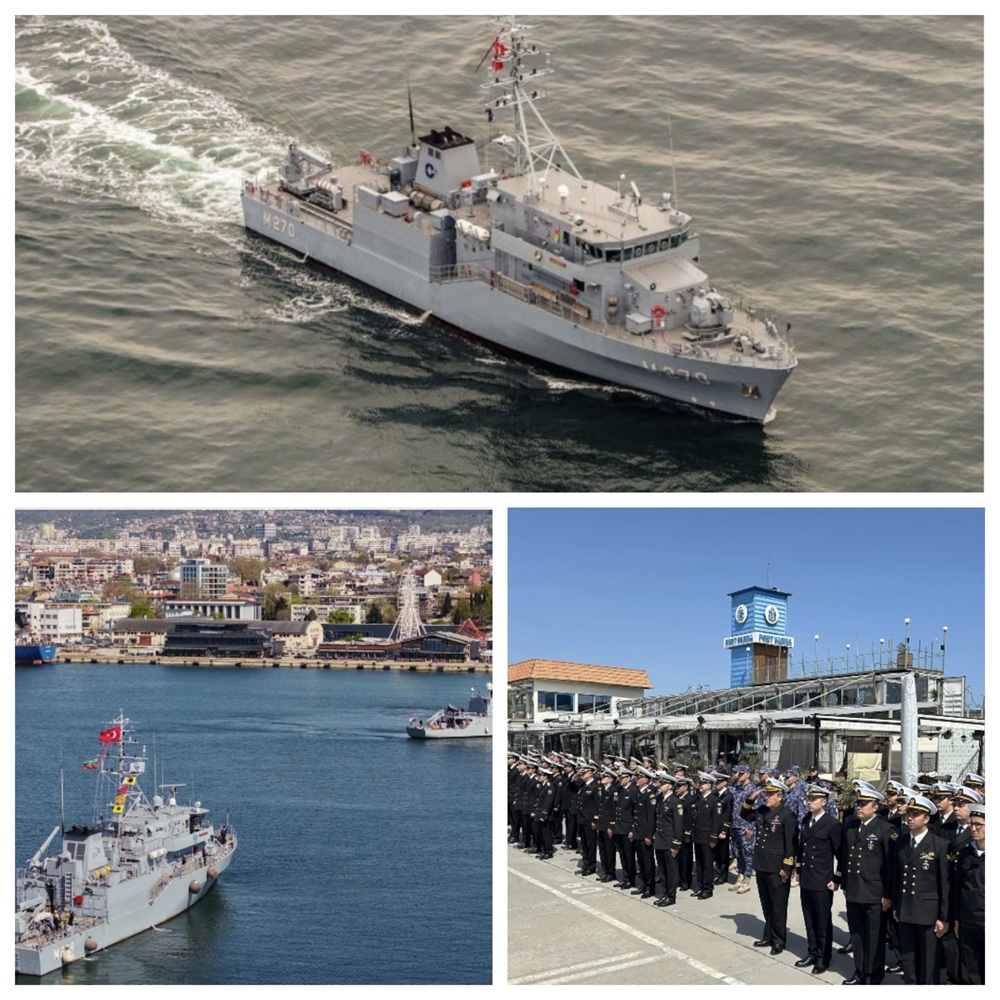 GUARDIANSHIP IN PRACTICE: LEADERSHIP, ADAPTATION, AND SECURITY CHALLENGES IN THE BLACK SEA
GUARDIANSHIP IN PRACTICE: LEADERSHIP, ADAPTATION, AND SECURITY CHALLENGES IN THE BLACK SEA
Teoman Ertuğrul TULUN 16.10.2025 -
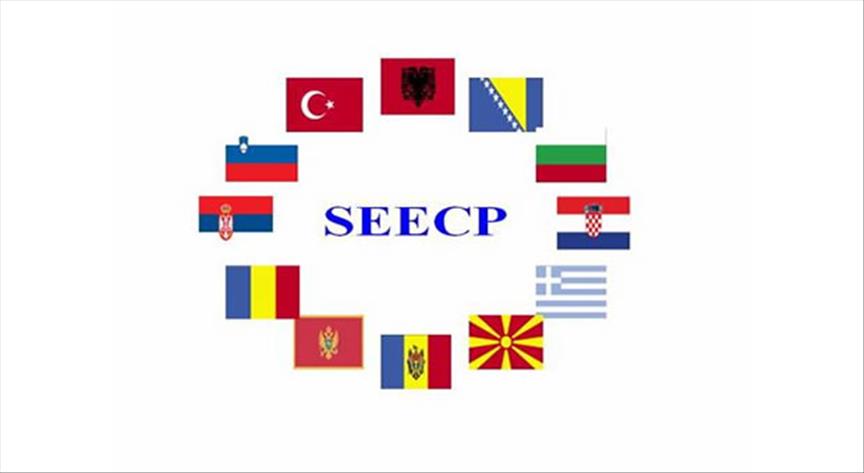 TURKEY HAS ASSUMED THE CHAIRMANSHIP-IN-OFFICE OF THE SOUTH EAST EUROPE COOPERATION PROCESS (SEECP)
TURKEY HAS ASSUMED THE CHAIRMANSHIP-IN-OFFICE OF THE SOUTH EAST EUROPE COOPERATION PROCESS (SEECP)
Teoman Ertuğrul TULUN 17.07.2020 -
 MACRON’S PROPOSAL OF CREATING EUROPEAN POLITICAL COMMUNITY AND NATO'S GUARDIAN ANGEL WINGS
MACRON’S PROPOSAL OF CREATING EUROPEAN POLITICAL COMMUNITY AND NATO'S GUARDIAN ANGEL WINGS
Teoman Ertuğrul TULUN 19.07.2022 -
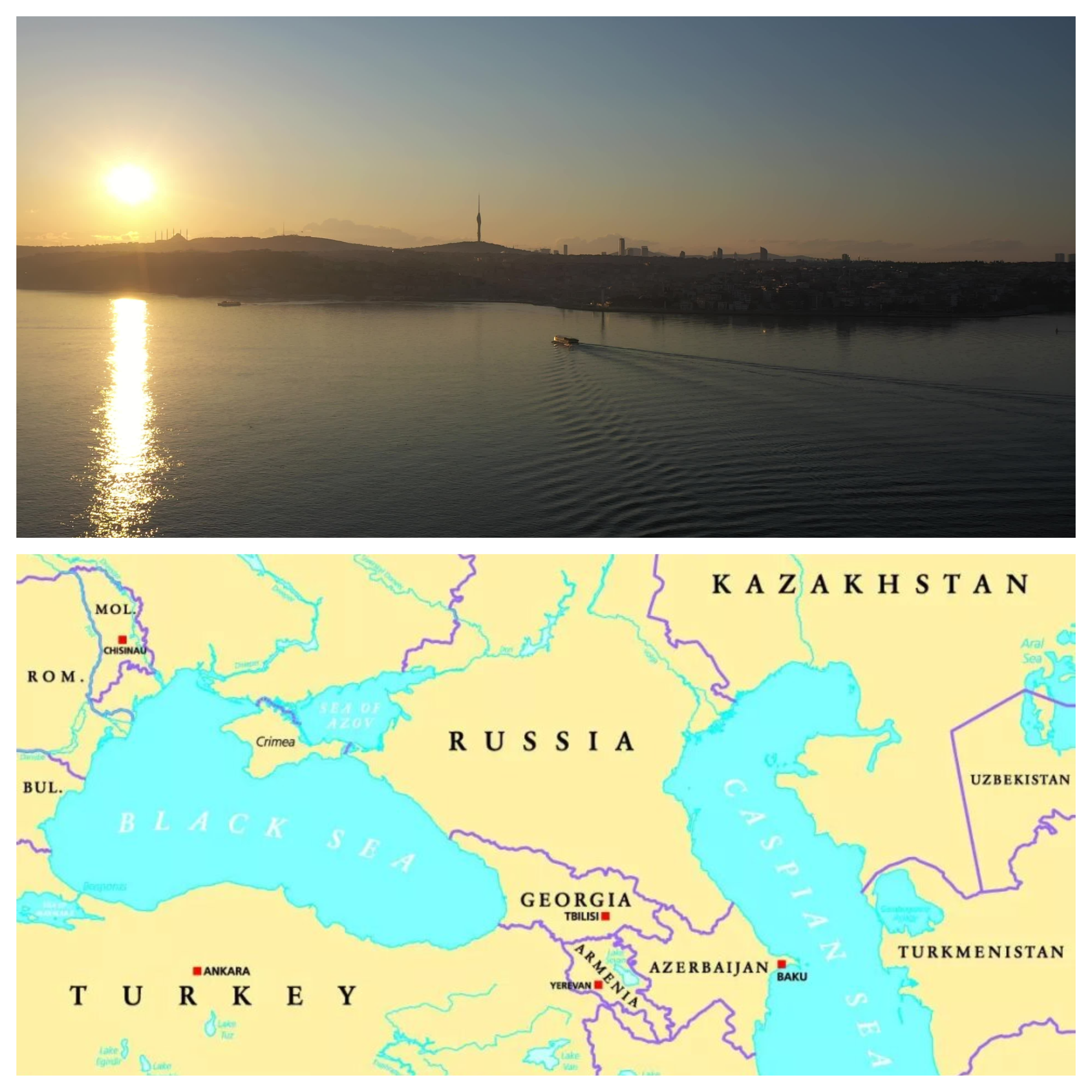 AT THE CROSSROADS: TÜRKİYE AND THE BATTLE FOR BLACK SEA ORDER
AT THE CROSSROADS: TÜRKİYE AND THE BATTLE FOR BLACK SEA ORDER
Teoman Ertuğrul TULUN 21.10.2025
-
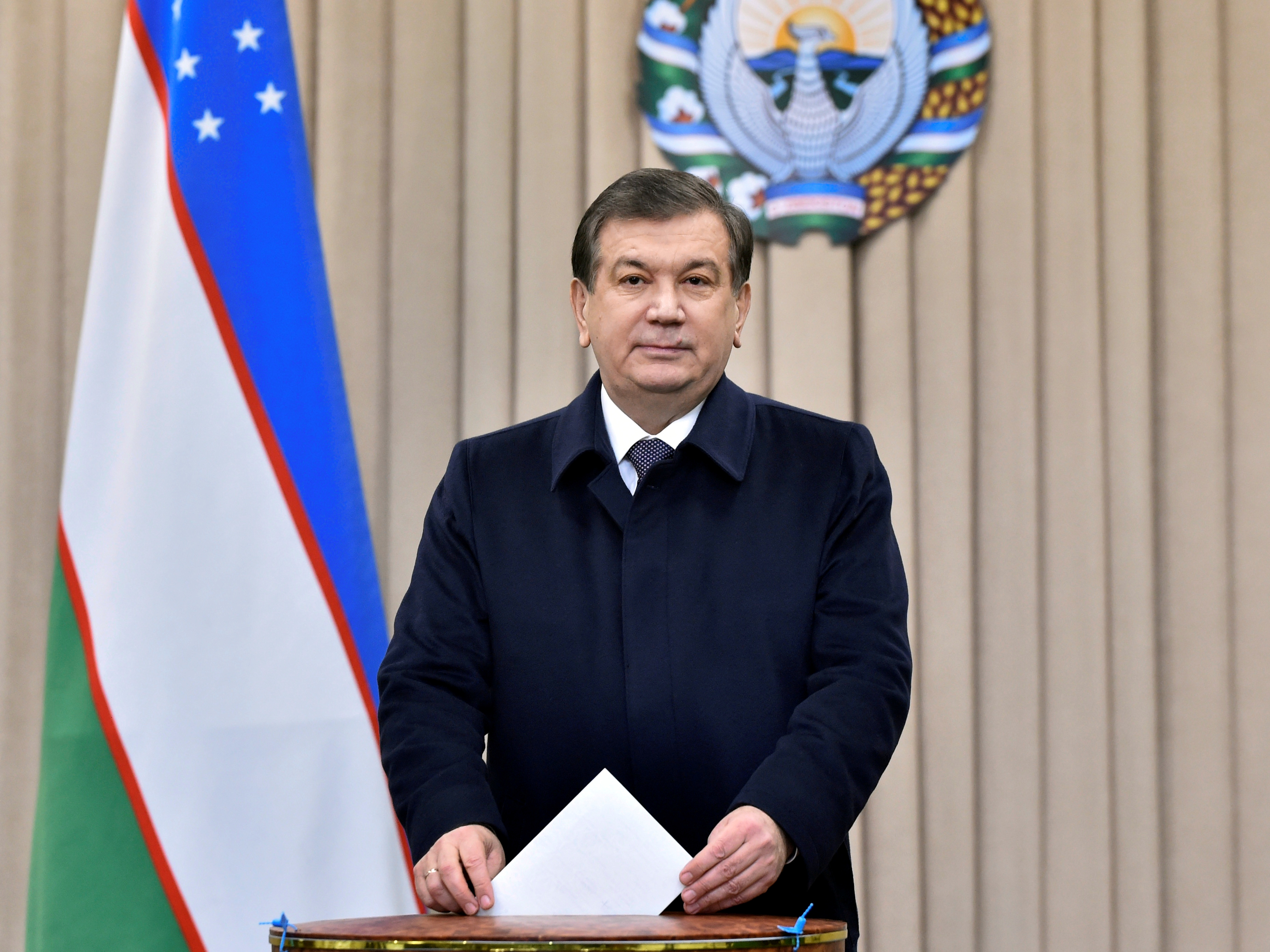 UZBEKISTAN’S REGIONAL POLICIES UNDER NEW PRESIDENT: A NEW ERA?
UZBEKISTAN’S REGIONAL POLICIES UNDER NEW PRESIDENT: A NEW ERA?
Özge Nur ÖĞÜTCÜ 18.08.2017 -
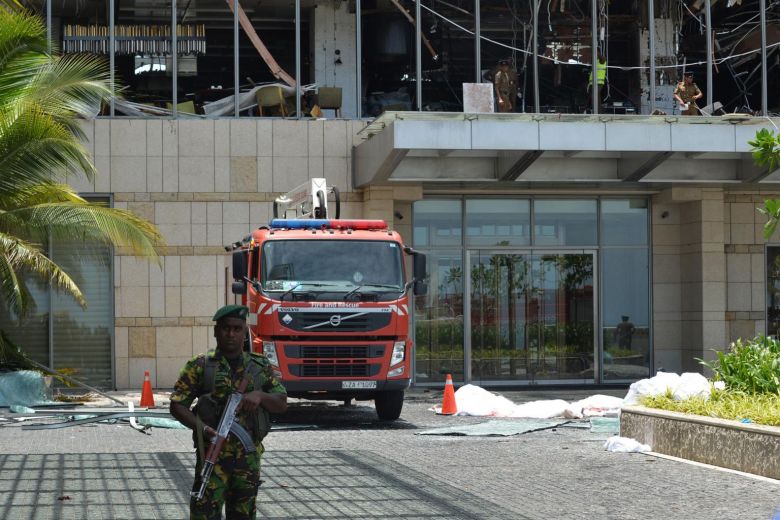 ABUSING SRI LANKA TERRORIST ATTACKS TRAGEDY AS A PRETEXT FOR PROPAGATING FALSE GENOCIDE CLAIMS
ABUSING SRI LANKA TERRORIST ATTACKS TRAGEDY AS A PRETEXT FOR PROPAGATING FALSE GENOCIDE CLAIMS
Teoman Ertuğrul TULUN 29.04.2019 -
 ESTABLISHING THE DELICATE BALANCE BETWEEN STRATEGIC AUTONOMY AND STRATEGIC INTERDEPENDENCE: THE CASE OF TÜRKIYE
ESTABLISHING THE DELICATE BALANCE BETWEEN STRATEGIC AUTONOMY AND STRATEGIC INTERDEPENDENCE: THE CASE OF TÜRKIYE
Teoman Ertuğrul TULUN 05.08.2025 -
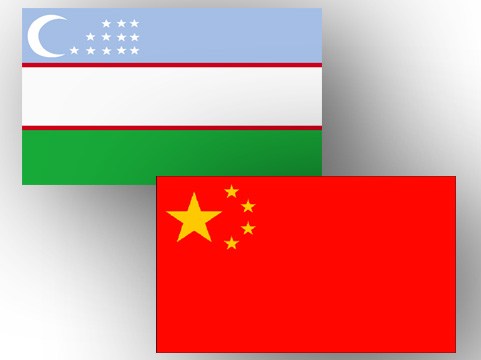 CHINA’S INCREASING INTEREST IN UZBEKISTAN
CHINA’S INCREASING INTEREST IN UZBEKISTAN
Özge Nur ÖĞÜTCÜ 21.02.2017 -
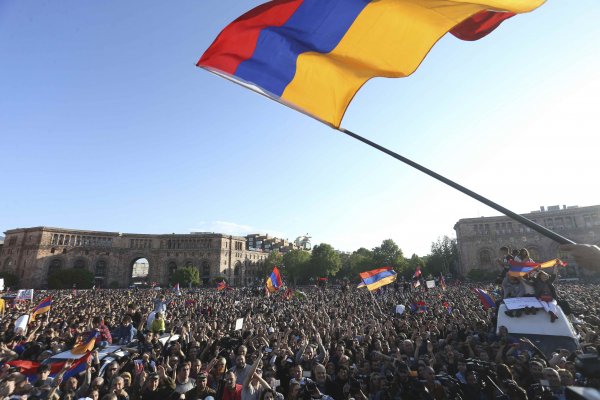 THE RULE STARTED WITH DEMONSTRATIONS ENDED WITH DEMONSTRATIONS
THE RULE STARTED WITH DEMONSTRATIONS ENDED WITH DEMONSTRATIONS
Tutku DİLAVER 14.05.2018
-
25.01.2016
THE ARMENIAN QUESTION - BASIC KNOWLEDGE AND DOCUMENTATION -
12.06.2024
THE TRUTH WILL OUT -
27.03.2023
RADİKAL ERMENİ UNSURLARCA GERÇEKLEŞTİRİLEN MEZALİMLER VE VANDALİZM -
17.03.2023
PATRIOTISM PERVERTED -
23.02.2023
MEN ARE LIKE THAT -
03.02.2023
BAKÜ-TİFLİS-CEYHAN BORU HATTININ YAŞANAN TARİHİ -
16.12.2022
INTERNATIONAL SCHOLARS ON THE EVENTS OF 1915 -
07.12.2022
FAKE PHOTOS AND THE ARMENIAN PROPAGANDA -
07.12.2022
ERMENİ PROPAGANDASI VE SAHTE RESİMLER -
01.01.2022
A Letter From Japan - Strategically Mum: The Silence of the Armenians -
01.01.2022
Japonya'dan Bir Mektup - Stratejik Suskunluk: Ermenilerin Sessizliği -
03.06.2020
Anastas Mikoyan: Confessions of an Armenian Bolshevik -
08.04.2020
Sovyet Sonrası Ukrayna’da Devlet, Toplum ve Siyaset - Değişen Dinamikler, Dönüşen Kimlikler -
12.06.2018
Ermeni Sorunuyla İlgili İngiliz Belgeleri (1912-1923) - British Documents on Armenian Question (1912-1923) -
02.12.2016
Turkish-Russian Academics: A Historical Study on the Caucasus -
01.07.2016
Gürcistan'daki Müslüman Topluluklar: Azınlık Hakları, Kimlik, Siyaset -
10.03.2016
Armenian Diaspora: Diaspora, State and the Imagination of the Republic of Armenia -
24.01.2016
ERMENİ SORUNU - TEMEL BİLGİ VE BELGELER (2. BASKI)
-
AVİM Conference Hall 24.01.2023
CONFERENCE TITLED “HUNGARY’S PERSPECTIVES ON THE TURKIC WORLD"









